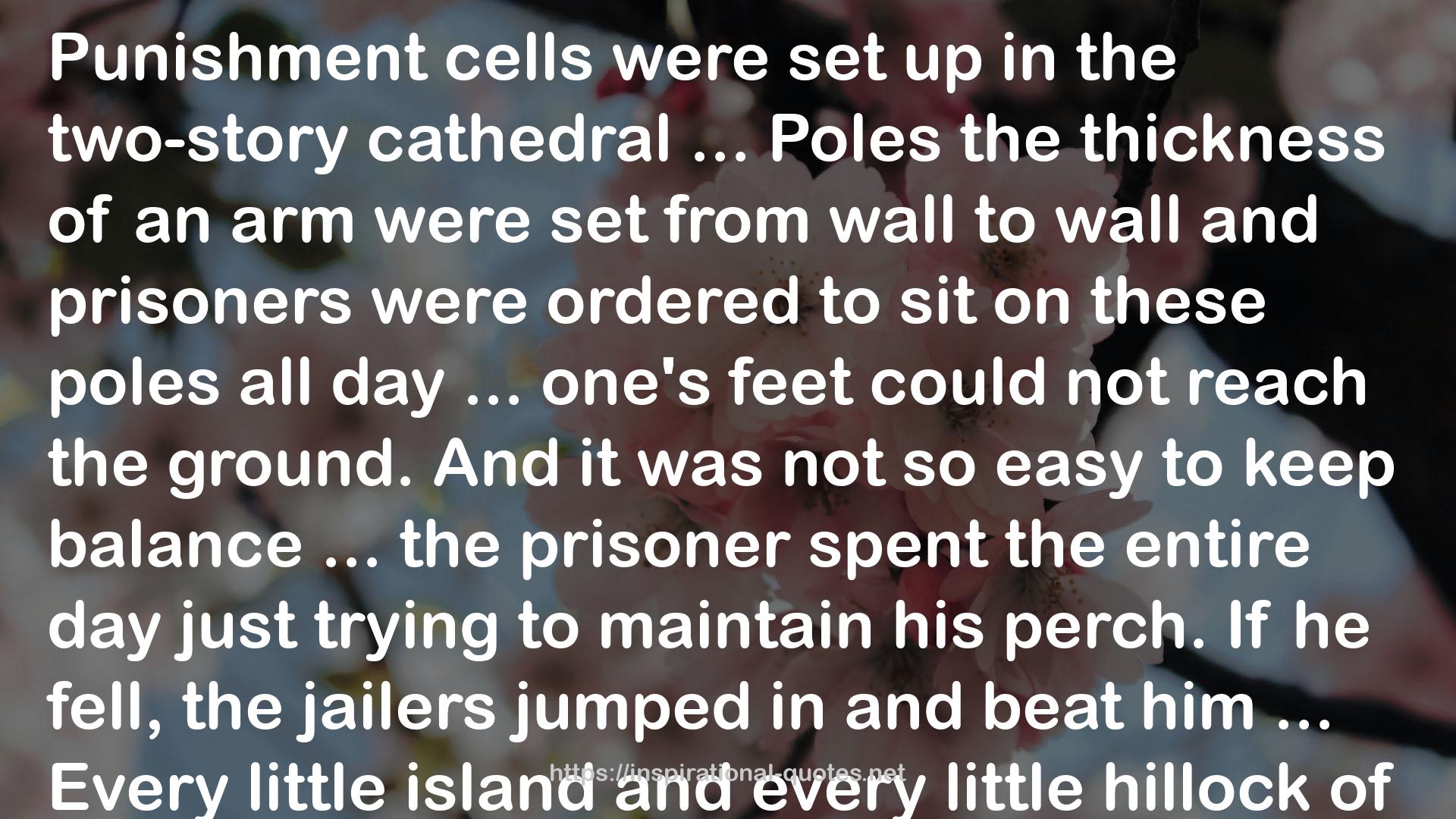" Punishment cells were set up in the two-story cathedral ... Poles the thickness of an arm were set from wall to wall and prisoners were ordered to sit on these poles all day ... one's feet could not reach the ground. And it was not so easy to keep balance ... the prisoner spent the entire day just trying to maintain his perch. If he fell, the jailers jumped in and beat him ... Every little island and every little hillock of the Archipelago had to be encircled by a hostile, stormy Soviet seascape ... Escapes multiplied ... For half a year the sea was frozen over, but not solidly, and in places there was open water, and the snowstorms raged, and the frost bit hard, and things were enveloped in mists and darkness. And in the spring ... there were the long white nights with clear visibility over long distances for the patrolling cutters ... it was only when the nights began to lengthen, in the late summer and the autumn, that the time was right ... for those who were out in work parties, where a prisoner might have freedom of movement and time to build a boat or a raft near the shore ... and to cast off at night ... and strike out at random, hoping above all to encounter a foreign ship ... The whole long history of the Archipelago, about which it has fallen to me to write this home-grown, homemade book, has, in the course of half a century, found in the Soviet Union almost no expression whatever in the printed word. In this a role was played by that same unfortunate happenstance by which camp watchtowers never got into scenes in films nor into landscapes painted by our artists ... "
― Aleksandr Solzhenitsyn , The Gulag Archipelago 1918–1956 (Abridged)
